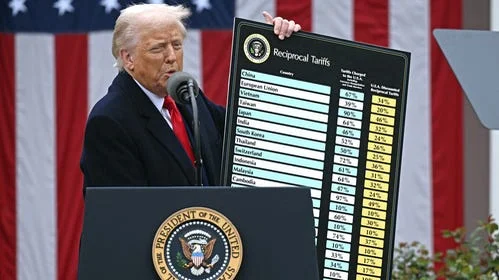
Trump’s Revision of Economic History: The Smoot-Hawley Tariff Act
Former President Donald Trump has recently been vocal about rewriting U.S. economic history, particularly focusing on the Smoot-Hawley Tariff Act of 1930. Trump's narrative suggests that the act, which raised U.S. tariffs on over 20,000 imported goods, was not as detrimental to the economy as traditionally believed. This perspective challenges the widely accepted view that the Smoot-Hawley Tariff contributed significantly to the Great Depression by sparking a global trade war.
Historians and economists have long criticized the Smoot-Hawley Tariff for its role in exacerbating economic downturns. However, Trump's revisionist take aims to align with his broader economic policies, which favor protectionism. Critics argue that Trump's reinterpretation of history is an attempt to justify his own tariff policies during his presidency.
The debate over the Smoot-Hawley Tariff's impact continues to be relevant as it reflects ongoing discussions about trade policies and their effects on the global economy. As Trump pushes his narrative, it remains to be seen how this revisionist history will influence future economic policies and public perception of past economic events.
Related issues news
Is it hawley smoot or smoot hawley?
In June of 1930, just eight months after the historic stock market crash that marked the start of the Great Depression, Congress enacted the Smoot-Hawley tariff law, championed by Senator Reed Smoot (R-Utah) and Representative Willis Hawley (R-Ore.).
Did tariffs cause the Great Depression?
The Smoot-Hawley Tariff Act did not cause the Great Depression. However, it did worsen conditions during that time. The Act increased tariffs, which further stressed struggling nations—including those in debt to the U.S.—and caused other nations to retaliate by imposing their own tariffs.